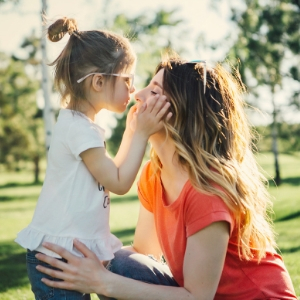Is Respectful Parenting Permissive Parenting?
There is a movement amongst modern families towards a more respectful parenting approach. Driven by an acknowledgment of previous faulty thinking around child development and progress that has been made in the research, many families want to do things differently but is respectful parenting permissive parenting?
Are modern parents trying to be their child’s best friend?
Mandy from Raise Early Years is an early childhood teacher, has a Masters in Child and Family Studies and is currently undertaking a PhD on respectful parenting methods. She shares her insights here into the modern movement towards respectful parenting, why the methods used are far from permissive and how it is an approach that can actually make parenting more enjoyable.
The movement towards respectful parenting.
It is important to understand that there are various parenting philosophies that have existed for centuries and different cultures have embraced a whole range of childrearing practices.
And these practices stem from the belief system that parents have on what it means to be a good parent.
In Western cultures starting in the 1960s there was a movement towards parent education and training. This was great because there was a desire to help parents to be more equipped for the significant and influential role that they would have and an intention to manage or diminish unwanted behaviours and prevent delinquency.
However, behaviour such as tantrums and toilet accidents began to be seen as a sort of misbehaviour. Behavioural management tools to address these ‘concerns’ at the time included strategies such as rewards and punishments. Many of the strategies taught came from first wave behavioural psychology approaches.
In the 1970s and 80s, attachment-based research was developing and was concerned with ensuring a positive parent-child relationship from the beginning because the outcomes for children with an early, healthy attachment were starting to be recognised.

Fast forward to today and while I think parents certainly are less inclined to want to use punishments and things like that, they’re then unsure about what their alternative is. There is a lot of focus on building healthy early attachments and when toddlerhood arrives parents begin to inquire more about the practical components day-to-day, as they suddenly have a little one with free will and boundaries need to be established.
What I love about the respectful approach is that it shifts the narrative about what the parent role is and understanding child development so that we can come from that place of understanding and recognising that children are human beings with an internal world, real feelings and intentions. And when we can see that, we can relate to them.
So it’s really parenting from a place of relationship and realising that every interaction we have with our child teaches something.
We can decide what that is, by the way that we interact with them.

The key ideas in this approach…is respectful parenting permissive parenting?
1. Self-control.
Control is not the goal, rather it is about self-control for the parent and the child. We can model and teach lessons by showing our own self-management.
And while parents have a role in being a confident leader and guide (it’s not permissive or this lovely ‘best friend’ scenario) we also need to trust our children in their inbuilt competencies and we can sit back sometimes and follow their lead.
2. Realistic expectations.
At times we also have these major expectations about our child’s behaviour (even when perhaps they are only 12 months old) and when we can adjust those expectations, we can give them room to grow and develop.
And also shift this whole idea that behaviours don’t necessarily need to be extinguished, rather, we can perceive them as communication.
We can help to guide those types of behaviours and not really see them as something we need to stop, but actually see them as something we can nurture.
My favourite image I love to leave parents with is actually that if you can imagine that your child has come to you in the form of a seed. Your job is to provide the environment, nurture the growth and pull out some of the weeds. And that’s a long process. It’s not immediate, childhood is a long phase. Then we can be in it for the long haul and not really expect these immediate results, perfect kids and perfect parents. It’s exciting!
The stories we tell ourselves are probably the most powerful things for whether we’re enjoying it or not enjoying it. Our mindset is so important.

3. Natural consequences as opposed to punishment.
Often the acts of punishing or sending our children to timeout, or similar strategies, have come from a place of wanting to teach right from wrong. They haven’t become from a place of “I wanted to cause my child pain.”
I’m sure parents are thinking, “I really want to help them to learn and I don’t want them to be unable to do the right thing.”
So we come from a place of really wanting to teach our children and not be negligent, but this is where I think asking yourself the question, “okay, but how do children learn really well?” is important.
And one thing we need to realise is children actually don’t learn very well when they’re feeling bad and ashamed.
They just shut down completely, it is a form of disconnection.
And in fact, what they can learn sometimes is to repeat some of those behaviours over and over again because they’re seeking that level of response from me. So children will always look to get their need for attention fulfilled, no matter what that looks like.
They’re not logically thinking through the steps. And when we give them unrelated consequences, they may respond but most of the time it is out of fear. And we need to wonder what that is doing to them overall; some children will externalise but others will internalise.
So it can look like I’ve got a really good kid because they just respond to me all the time, but we need to question some of the long term impacts of these strategies. And there’s so much research coming out about that now.
Children are actually far more responsive to learning when their relationship with us is strong and we can calmly and confidently still set limits. We absolutely have to set limits because they feel secure when we do, but we can do that in a way that acknowledges that they’re not giving us a hard time, they’re having a hard time.
And we understand that they’re impulsive, particularly in these early years from zero to six with their underdeveloped frontal lobe.
At this age, even if they wanted with all of their heart to do what you’ve asked them to do, sometimes they are so impulsive they cannot. So we’ve got to start to see it as “help me to help myself because I’m out of myself here.” An approach that says, “I can see you are having a hard time, I want to set a limit and I’m going to help you stop.” That is teaching the initial phases of self-control because you’re helping them to stay within the boundary.
Emotional coaching comes in when we can discipline by acknowledging the feeling while setting a boundary. For example, your child wants to hit and you take their hand and say “I can see you’re angry, but I can’t let you hit.” We’re modelling self-control and being the boundary.
I think it is so helpful when we can ask ourselves, what are we teaching in our interactions?

4. You don’t need to be perfect.
Parents are amazing. We are all amazing. Because the selfless act of being a parent to a young child isn’t always easy. It is exhausting and tiring.
And that’s the other thing that I love about the respectful approach to parenting is that you don’t have to be perfect.
In fact, there are so many times I’m not perfect. So if you ever see me, you’re going to see imperfection. But I am also honest to my children, so if I do start to get irritated and raise my voice and things like that, then I’ll actually say “hey, I lost my cool and I’m sorry.”
That’s a vulnerability that we didn’t necessarily see a lot of in years gone by because it felt like weakness and we were supposed to be teaching them strength.
But I think children are learning so much through all of these little interactions with us, they’re learning what it is to be human.
That knowledge has definitely changed my enjoyment of being a parent. I’d love parents to feel less stressed, more confident and able to enjoy it more.
 Raise Early Years
Raise Early Years
Mandy offers a range of services at Raise Early Years including Parent-Child natural play classes, playroom sort and set services, a parenting support membership, workshops and 1:1 consults. To find out more head to her website.

Struggling to get your little one to sleep without resorting to sleep training? Grab our gentle sleep strategies guide here.




